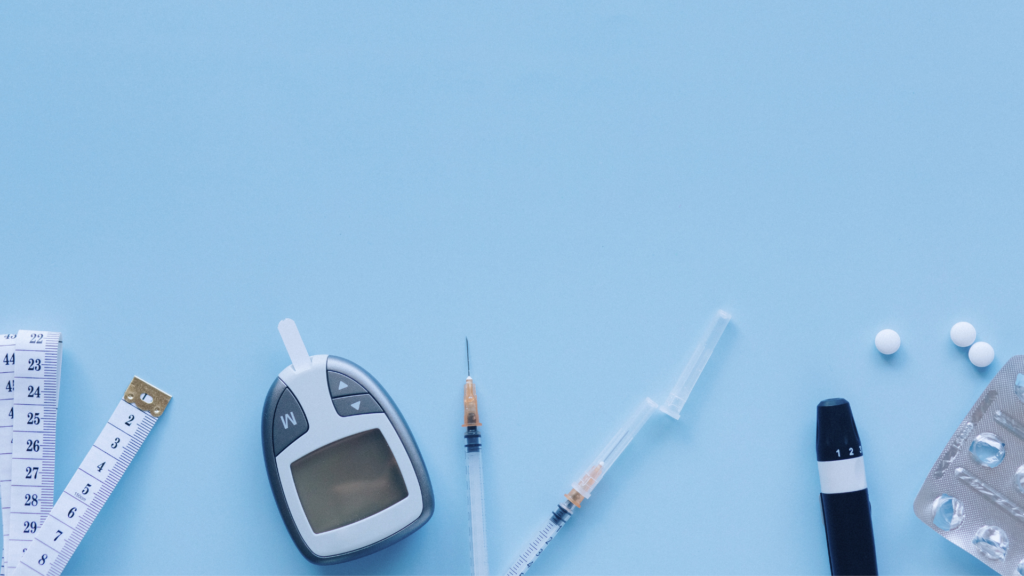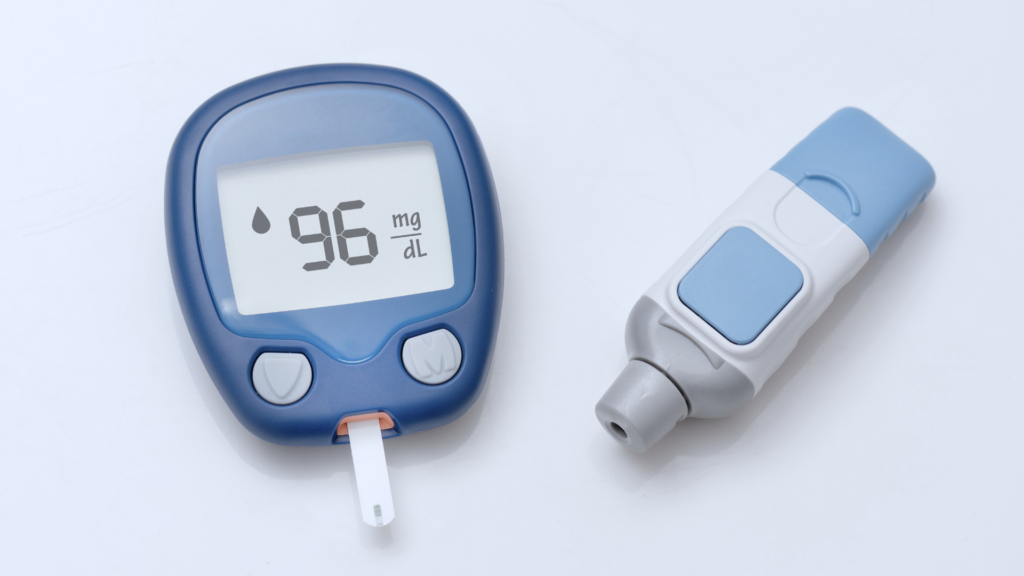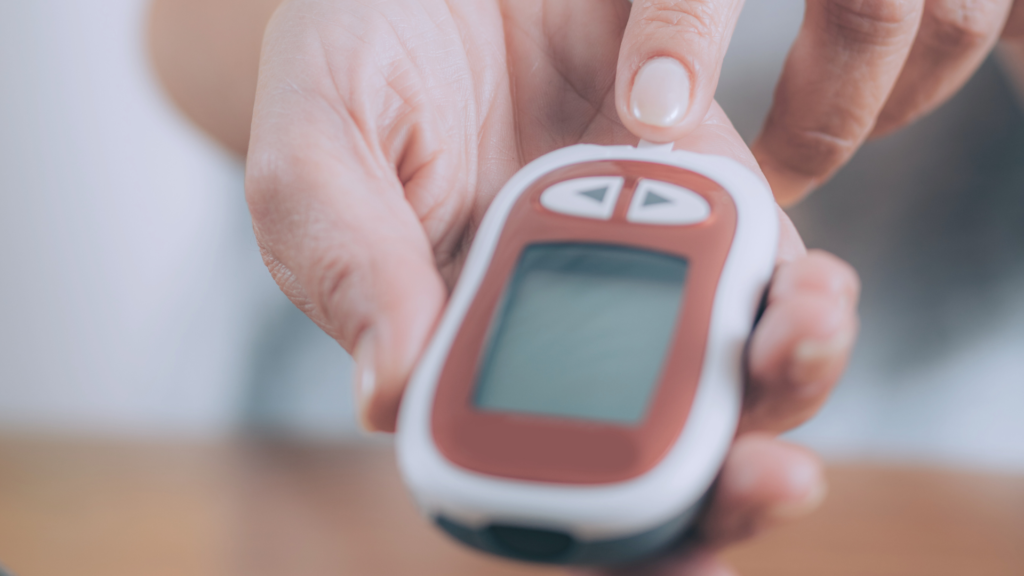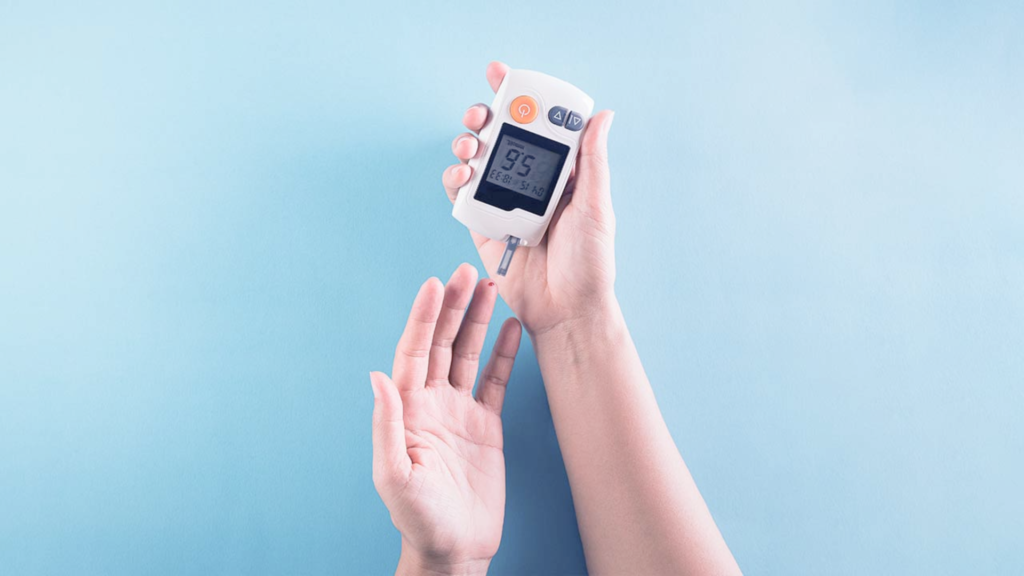Looking to Improve Blood Sugar Regulation? Here Are 5 Non-Food Ways to Support It!

Have you ever stopped to wonder what, aside from your morning oatmeal or your favorite fruit, can impact your blood sugar regulation? Most of us know that diet plays a crucial role, but did you know that many other aspects of your lifestyle are just as influential in maintaining those levels? Today, we’re diving into some powerful non-food approaches to support healthy blood sugar balance. This isn’t just about the occasional gym session or skipping sugary drinks—it’s about integrating positive habits that can make a real difference in your well-being. Daily MovementMove it to manage it! Engaging in regular physical activity isn’t just about burning calories; it’s about enhancing your body’s ability to regulate blood sugar. When you exercise, your cells become more sensitive to insulin, the hormone that helps sugar move from your blood into your cells. Aim for at least 30 minutes of moderate physical activity most days. Whether it’s a brisk walk, a dance class, or a bike ride, find an activity that gets you moving and that you enjoy. Walks After MealsA stroll for sugar control. Heading out for a light walk after eating can be an excellent strategy for managing blood sugar levels. Studies suggest that a 15-minute walk post-meal can help blunt blood sugar spikes. Plus, it’s a great way to digest and enjoy some fresh air! 7+ Hours of SleepSnooze to regulate glucose. Never underestimate the power of a good night’s rest! Sleep deprivation can disrupt the hormones involved in blood sugar control. Striving to achieve at least seven hours per night can aid in keeping those levels stable, ensuring you’re ready to tackle the day with balanced energy. Plenty of WaterHydration for health. Drinking ample water is beneficial for numerous reasons, and supporting blood sugar balance is one of them. Adequate hydration helps your kidneys to flush out excess sugar through urine. Plus, opting for water instead of sugary drinks can aid in reducing unnecessary sugar intake. Stress ManagementCalm the mind to calm blood sugar. Stress has a direct impact on blood sugar levels, thanks to hormones like cortisol that increase glucose. Managing stress through yoga, meditation, or deep breathing exercises isn’t just good for your mind—it also helps maintain healthier blood sugar levels. Emphasize the Holistic ApproachBy looking at all aspects of our lives, we start to see health in a different light. Being active, sleeping well, staying hydrated, and keeping stress at bay are not just boxes to tick—they’re part of a full, vibrant life that naturally supports balanced blood sugar levels. We’ve journeyed through some key non-food strategies to start incorporating to better regulate your blood sugar: get moving, walk after you eat, prioritize sleep, stay hydrated, and manage stress. These changes might seem small on their own, but together, they can have a significant impact on your blood sugar and overall health. Book a call today to start your journey to a more vital and healthier you!
How Can I Improve Blood Sugar Regulation Beyond Just Diet?

Stable blood sugar levels are the cornerstone of good health, and while diet is critical, it’s only part of the story. Have you ever wondered what else you can do to help keep your blood sugar in check? Let’s explore the power of a holistic lifestyle approach for achieving a healthy blood sugar balance, showing that what we do is just as important as what we eat. The Impact of Lifestyle Choices on Blood Sugar RegulationEach decision we make daily, from the amount of sleep we get to how we handle stress, significantly impacts our blood sugar. While we often focus on diet, these non-dietary factors can also make a profound difference. Non-Food-Related Ways to Support Healthy Blood Sugar Balance Daily Movement Physical activity is a key player in maintaining blood sugar levels. Regular exercise helps increase insulin sensitivity, which means your cells are better able to use the available sugar in your bloodstream. Aim for at least 30 minutes of moderate-intensity activity most days. Walks After Meals A short walk after eating can work wonders for blood sugar management. This gentle activity encourages more immediate sugar uptake by your muscles, effectively lowering post-meal glucose levels and aiding digestion. 7+ Hours of Sleep Never underestimate the power of a good night’s sleep. Sleep influences hormones like insulin and helps regulate the appetite-controlling hormones leptin and ghrelin. Aim for seven to nine hours of quality sleep to support your blood sugar. Plenty of Water Staying hydrated is essential for all aspects of health, including balancing blood sugar. Adequate water intake can help to flush excess glucose through urine and keep your metabolic processes functioning optimally. Stress Management Chronic stress can wreak havoc on your blood sugar levels by raising cortisol, a hormone that can increase glucose production. Techniques such as meditation, breathing exercises, and yoga can all help keep stress and blood sugar levels down. Emphasizing a Holistic Approach to HealthThe path to stable blood sugar isn’t just through the stomach. By combining dietary strategies with these lifestyle adjustments, we can tackle blood sugar regulation from all angles. A holistic approach enhances overall health, acknowledging the interconnectedness of our bodily systems. Through daily movement, post-meal walks, quality sleep, hydration, and stress management, we have the power to support our blood sugar levels effectively. Remember, it’s not just about changing what’s on your plate but also about adjusting how you live your day-to-day life. We encourage you to think of your health as a puzzle, with each piece — sleep, exercise, hydration, stress, and diet — fitting together to create a complete picture of wellness. Start incorporating these non-food strategies to enhance your blood sugar regulation and move towards a more balanced, healthy lifestyle. Book a call today to start your journey to a more vital and healthier you!
Why Does Your Morning Routine Impact Blood Sugar Levels?

Have you ever wondered how your morning rituals affect your body, particularly your blood sugar levels? Understanding the importance of maintaining healthy blood sugar levels is crucial not only for those managing diabetes but for anyone interested in keeping their energy levels stable throughout the day. The choices you make first thing in the morning can significantly influence how your body regulates glucose. Let’s dive into three pivotal factors that play a role in this: cortisol, the types of carbohydrates you eat, and your caffeine intake. Cortisol Cortisol, often called the “stress hormone,” naturally spikes upon waking as part of your body’s circadian rhythm, helping you kickstart the day. However, this increase can also raise your blood sugar levels. If your first meal is high in carbohydrates, this effect is magnified, leading to significant glucose fluctuations. To mitigate this, you can: Integrate stress-reducing practices like meditation or gentle morning exercise into your routine.Choose a breakfast that balances carbs with proteins and healthy fats to temper the blood sugar increase. Carbohydrates Carbohydrates are a vital part of your diet but eating them solo, especially on an empty stomach, can lead to rapid spikes and subsequent drops in blood sugar. Starting your day with only a bagel or a piece of toast can set you up for a rollercoaster day of energy highs and lows. Combine carbs with proteins or fats such as eggs, yogurt, or avocados which slow down the digestion and absorption process, helping to maintain more stable blood sugar levels.Include fiber-rich foods like whole grains or vegetables to further stabilize digestion and impact. Caffeine A morning cup of coffee is a must for many, but caffeine’s stimulating effect doesn’t stop at just waking you up. It also stimulates your adrenal glands to release adrenaline, which in turn triggers a glucose release, raising your blood sugar levels. To manage this: Consider lower caffeine alternatives like tea, or delay your coffee until after you’ve had a balanced breakfast. Monitor your body’s response to caffeine and adjust your intake as necessary, especially if you notice blood sugar spikes. Starting your day with the right blend of nutrients, mindfulness of stress levels, and careful management of caffeine can profoundly affect your blood sugar levels and overall energy throughout the day. Being aware of how cortisol, carbs, and caffeine impact these levels allows you to make informed choices that support your health goals. By understanding and adjusting these aspects of your morning routine, you can enjoy a more balanced start to the day, keeping those dreaded energy crashes at bay! Book a call to start your journey to a more vital and healthier you!
Are You Unknowingly Disrupting Your Blood Sugar? Stop Doing These Now!

Many people are well-informed about the basics of maintaining stable blood sugar levels, such as eating a balanced diet and staying active. However, there are some less obvious habits that can unexpectedly disrupt your blood sugar control. Here are some key behaviors to watch out for if you want to keep your glucose levels in check: Avoid Eating Carbohydrates Alone When you eat carbs by themselves, they are quickly broken down into sugar, which enters your bloodstream rapidly and causes a spike in blood sugar levels. To prevent these spikes, pair carbs with proteins, fats, or fiber. These not only slow down the absorption of sugar but also keep you feeling full and satisfied longer. Don’t Eat When You’re Stressed Stress can cause your body to release more of the hormone cortisol, which in turn signals your liver to increase sugar in your blood for extra energy to deal with the stressor. If you eat when stressed, this can lead to even higher blood sugar levels. Try to manage your stress through techniques like deep breathing or walking, and eat when you feel calmer. Skip the Morning Coffee on an Empty Stomach Drinking coffee can stimulate the production of adrenaline, which signals your body to release sugar into the bloodstream. If you drink it on an empty stomach, this effect is more pronounced. Try eating a balanced breakfast before your coffee, or choose a lower-caffeine drink to start your day. Avoid Late Night Meals Eating too close to bedtime means your body will be digesting while you sleep, which can lead to spikes and drops in blood sugar that disrupt your sleep. Try to have your last meal a few hours before bed, giving your body enough time to process the food before turning in. Get Adequate Sleep Lack of sleep can make your body less effective at using insulin, which can lead to higher blood sugar levels the following day. Make sure you’re getting 7-9 hours of quality sleep per night to help maintain good blood sugar control. Keeping your blood sugar levels stable requires attention to these subtle yet impactful habits. You can significantly improve your blood sugar regulation over time by making small adjustments to your daily routines. Book a Call today to start your journey to a more vital and healthier you!
What Nutrients Are Essential for Supporting Healthy Blood Sugar Levels?

When it comes to managing your blood sugar levels, the importance of diet cannot be overstated. Beyond just watching your intake of fats, proteins, and carbs, did you know that certain micronutrients play a crucial role in regulating your blood sugar? Yes, the path to optimized hormones, enhanced brain health, improved energy levels, and overall wellbeing significantly hinges on managing your blood sugar effectively. Key Micronutrients for Blood Sugar Regulation Maintaining balanced blood sugar levels requires more than just mindful macronutrient consumption. Micronutrients – those vital vitamins and minerals – are equally important. Here’s a closer look at key nutrients that support blood sugar regulation: B Vitamins B Vitamins are crucial for energy metabolism, with certain types like B1 (Thiamine), B3 (Niacin), and B6 (Pyridoxine) playing roles in converting food into energy and ensuring efficient insulin function Magnesium Magnesium helps regulate blood sugar levels by influencing the release and activity of insulin. Its deficiency is often noted in individuals with insulin resistance. Chromium Crucial for metabolism and enhancing the action of insulin, chromium plays a significant role in the body’s ability to use glucose effectively. Zinc Zinc is vital for the production and secretion of insulin within the pancreas. It’s also essential for immune function, which is critical for overall health. Omega-3’s Omega-3 fatty acids can help reduce inflammation and improve cellular function, thereby potentially enhancing insulin sensitivity. Vitamin E As an antioxidant, Vitamin E can improve insulin action and contribute to blood sugar control by reducing oxidative stress. Vitamin D Low levels of Vitamin D have been linked to an increased risk of type 2 diabetes. This nutrient is necessary for proper insulin production and function. The Importance of a Nutrient-Dense Diet What does all of this mean for you? It underscores the importance of incorporating a variety of nutrient-dense foods into your diet to support your body’s blood sugar regulation effectively. Balancing your intake of carbohydrates with adequate protein, healthy fats, and fiber is foundational. Yet, ensuring you’re also getting these crucial micronutrients is just as vital. If you’re looking to support your blood sugar, metabolism, or energy levels further, adopting a diet rich in these nutrients is a strong step in the right direction. For those seeking more targeted support, professional guidance can help personalize your dietary approach to meet your specific needs. Remember, balancing your blood sugar isn’t just about avoiding the sweet stuff; it’s about enriching your diet with the micronutrients your body needs to thrive. Start incorporating these vital vitamins and minerals into your daily routine and take a proactive step toward a healthier, more balanced life. Book a call today to start your journey to a more vital and healthier you!
Is Sugar Speeding Up Your Aging Process?

Sugar has a sweet spot in our lives, but it might just be souring your skin’s youthfulness. Glycation, a reaction kickstarted by sugar spikes, can accelerate the aging process, leaving its mark on your skin in the form of wrinkles and sagging. The culprit behind this? A group of compounds known as advanced glycation end products, or AGEs. The Sugary Culprit Behind Aging Skin We often see sugar as an innocent treat, but the harsh reality is that when sugar hijacks your metabolism, it starts a chain reaction called glycation. This process, sparked by elevated blood sugar levels, leads to the formation of AGEs. These unfriendly molecules have a penchant for disrupting collagen, the protein that keeps your skin firm and youthful. AGEs: The Agents of Aging Imagine these AGEs as the party crashers of your skin’s youthful gala. They accumulate over time, hardening the collagen that’s vital for your skin’s elastic and vibrant appearance. The more AGEs you have in your system, the more they contribute to the visible signs of aging: fine lines, wrinkles, and lack of firmness. 😩 But AGEs don’t stop at the superficial level; they have a deeper impact on your overall health, potentially contributing to chronic conditions often associated with aging. Yes, glycation is an inevitable part of the aging process, but are you unknowingly pressing the accelerator with your dietary choices? Diets high in sugar and refined carbs can boost glycation and AGE production, while skimping on the protective factors found in healthy fats, fiber, and protein. To keep the hands of time from ticking too quickly, it’s essential to foster a diet that supports rather than sabotages your skin’s integrity. By shifting focus towards a balanced diet, rich in antioxidants and essential nutrients, you might just slow down the glycation train. The Motivation to Embrace Youthful Habits Reflect on your current lifestyle and dietary habits—could they be contributing to a speedier aging process? If preserving your youthful glow and maintaining a vibrant, healthy body inspire you, it might be time to reconsider your sugar intake. AGEs and glycation might seem like voluminous villains in your skin’s saga, but understanding their connection to sugar is the first step in turning back the clock—or at least, slowing its roll. Your future self will thank you for the sweet return to youthfulness—minus the sugar. Book a call today to start your journey to a more vital and healthier you!
Which Triggers You First, Sugar or Stress?

It’s the classic case of physiological cause and effect – does stress ramp up your blood sugar levels, or does a sugar rush provoke your stress response? This critical question ties directly into understanding how to maintain a balanced lifestyle. Let’s dive in and unravel this intricate connection. The Stress Response: Your Body’s Red Alert Have you ever wondered what happens inside your body when stress kicks in? Under pressure, a surge of hormones, including cortisol and adrenaline, flood your system. Their primary mission is to elevate glucose levels in your blood, ensuring your cells are primed with energy to tackle immediate danger. This is your primal fight or flight mechanism in action. But hold on a second—what if the danger is all in your head, like looming deadlines or personal issues? Well, that’s when things get tricky. The Surplus Sugar Scenario This rush of blood sugar, when you’re not physically exerting yourself to escape a predator, results in a surplus. The long-term effect? It can push your body towards insulin resistance and set the stage for chronic blood sugar issues. Stress, therefore, is not just a psychological issue; it’s a biochemical trigger impacting your metabolic well-being. The Sugar-Stress Loop Conversely, indulging in that extra slice of cake or having one too many sugary drinks does more than just satisfy a sweet tooth. It sparks an immediate spike in your blood sugar, followed by an inevitable crash. Your body interprets this crash as a mini crisis, promptly releasing more cortisol and adrenaline into your bloodstream. The Sweet Route to Stress And there it is – a high-sugar diet inadvertently winding you up for stress. This affects your mood and can encourage a stressful state of mind, perpetuating a cycle that’s hard to break free from. So, What’s Your Trigger? Pause for a moment and reflect—between the sugar and the stress, which is the starting point for you? Pinpointing the initial trigger is pivotal, as it’s the first step toward implementing targeted changes that can significantly improve your life balance and well-being. Break the Cycle with Proven Strategies Here are some actionable ways to disrupt the stress-sugar axis and reclaim your physiological peace: Understanding the bidirectional relationship between blood sugar and stress is a powerful tool in taking control of both. It’s not just about making better food choices or finding ways to relax—it’s about seeing the pattern and interrupting it. Book a Call today to start your journey to a more vital and healthier you!
Factors That Influence Blood Sugar Balance

Maintaining blood sugar balance is akin to walking a tightrope. It’s precise, it’s delicate, and it’s crucial for your health. A common misconception is that your genes seal your fate with blood sugar. While it’s true that genetics and age play a role, there’s a vast array of factors within your control to help you maintain equilibrium. Genetics and Age: Factors Beyond Your Control It’s inescapable—our genetic makeup and the ticking clock influence our blood sugar balance to a certain degree. These factors can predispose us to potential challenges in maintaining optimal levels. Yet, understanding that lifestyle choices can significantly mediate these innate susceptibilities gives us the power to steer our health destiny in a brighter direction. Factors You Can Control for Blood Sugar Travel Beyond the immutable lie the variables we can influence. Let’s delve into how diet, exercise, stress, hormones, and sleep are pivotal in managing blood sugar levels. Diet The fuel you choose daily is a direct ticket to influencing your blood sugar trajectory. Diets rich in fiber, lean proteins, and healthy fats contribute to more stable blood sugar levels. Foods like leafy greens, whole grains, nuts, and seeds are your allies in this journey. Conversely, refined sugars and high-glycemic carbohydrates are the villains, spiking blood sugar and undermining balance. Exercise Physical activity is a cornerstone of blood sugar management. Not only does it aid in weight control, but it also improves insulin sensitivity. Incorporate a mix of cardiovascular exercise, strength training, and flexibility exercises. Activities like brisk walking, cycling, yoga, and resistance training can make a significant difference. Stress The link between stress and blood sugar is profound. Chronic stress leads to the release of hormones such as cortisol, which can directly affect blood sugar levels. Incorporating stress-reduction techniques like mindfulness, meditation, deep breathing exercises, or even pursuing hobbies can help mitigate this impact. Hormones Hormonal imbalances, particularly insulin resistance, are directly linked to blood sugar imbalances. Lifestyle choices that support hormone balance include regular physical activity, stress management, and a balanced diet. In particular, modest weight loss and reducing intake of sugars and refined carbs can improve the body’s insulin sensitivity. Sleep Never underestimate the power of a good night’s sleep on blood sugar regulation. Lack of sleep can lead to increased stress hormones and weight gain, impacting blood sugar. Establishing a serene bedtime routine, avoiding caffeine and electronic devices before bed, and aiming for 7-9 hours of sleep can help stabilize blood sugar levels. While genetics and age are factors we can’t alter, much of the power to control blood sugar lies within our grasp. By focusing on the areas we can influence—diet, exercise, stress, hormones, and sleep—we can make strides toward achieving better health outcomes. Embrace these changes with open arms and a proactive mindset. Remember, it’s the daily choices that shape our health. Start making those small adjustments today, monitor your progress, and watch how your body responds with gratitude. Book a Discovery Call now and embark on your journey toward a healthier, more vital you!
What Does Sugar Do To Your Body?

When we think of sugar, often visions of sweet treats and the energy boost associated with them come to mind. But have you ever considered what happens inside your body when you indulge in a sugary snack? It’s a process that starts at the cellular level and can have significant implications for your overall health. So, before we reach for that extra spoonful of sugar, let’s take a moment to understand the journey it takes in our bodies and the impact it has. Ready for a deep dive into the sweet (and not-so-sweet) details? Let’s go! The Process of Sugar Absorption:After enjoying your favorite dessert, sugar enters your bloodstream as glucose, the body’s preferred energy source. Beta cells in your pancreas detect this rise in blood sugar and promptly release the hormone insulin. It’s the key that allows glucose to enter cells, where it can be used to power your every move. The Consequences of Sugar Spikes:A sudden intake of sugar can send your blood glucose levels skyrocketing, and insulin spikes along with it. Insulin’s main job is to help shuttle that glucose into your cells, keeping your energy levels up and your blood sugar in check. But this rush is only a temporary fix for your energy needs. The Aftermath: Sugar Crash and its Effects:Picture this: your blood sugar, once soaring high, now plummets. This sugar crash leaves you feeling hungry again, perhaps shaky, and enveloped in a brain fog. But there’s more: if you frequently indulge in sugar marathons, your body may become less sensitive to insulin—a stepping stone toward insulin resistance. The Importance of Balanced Nutrition:Combatting the roller coaster of sugar highs and lows starts with your diet. A balanced plate—complete with healthy fats, plenty of fiber, and a generous helping of protein—can dampen the impact of too much sugar. Making mindful choices can keep you satisfied longer and your blood sugar levels steadier. We’ve seen how sugar can sway our energy levels and impact our health—right down to our very cells. If we want to be kind to our bodies and maintain a state of optimal health, considering the quality and quantity of sugar in our diet is crucial. Remember, a conversation with your sweet tooth is good, but a conversation about sugar with a healthcare professional is even better. Keep engaging, keep learning, and here’s to your health—may it be as sweet as it can be, naturally. Book a call to start your journey to a more vital and healthier you!
Signs of Blood Sugar Imbalance You May Not Know

Understanding your body’s signals is essential to maintaining good health, and sometimes these signals are subtle yet critical indicators that something is not quite balanced within. While blood sugar imbalances may not always cause immediate or severe symptoms, over time they can lead to more serious health issues. But keep in mind: the only way to truly know if you have blood have blood sugar problems is to test. Observations about how you feel can be misleading, so testing is a key step in managing your health. Here are some signs that could suggest a blood sugar imbalance: Excess Belly FatCarrying excess weight, particularly around the waist, can be a visible sign of insulin resistance. A waistline measurement greater than 35 inches in women and 40 inches in men is often considered a risk factor. Intense Sugar CravingsCraving sugary snacks, especially after meals, can be a sign of fluctuating blood sugar levels and your body’s demand for quick energy. Energy CrashesFeelings of fatigue or a “crash” after a meal can indicate that your blood sugar levels have spiked and then plummeted. Brain FogDifficulty concentrating, confusion, or a lack of mental clarity can be linked to low or unstable blood sugar levels. Mood SwingsUnexpected changes in your mood or irritability can occur when blood sugar levels are not consistent. Skin TagsUnexpected small growths on your skin, particularly in areas where there are skin folds, might be connected to insulin resistance. Darkened Skin CreasesKnown as acanthosis nigricans, this is a condition where skin creases become darker and can indicate high insulin levels. While these signs point toward possible insulin resistance, they are not definitive proof. Insulin resistance can lead to chronic issues like inflammation, difficulty managing weight, and even heart cancer if not addressed. Keep an eye out for our upcoming posts on how to understand and optimize your blood sugar. Together, we can work towards a more vital you. Book a call today for a personalized plan that can help you feel your best yet.



